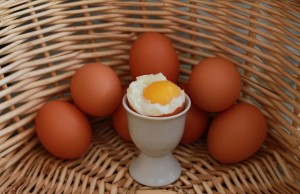immigrant, alien, foreigner [noun] [de allochtoon, de allochtonen] [‘al-log-toon’]
The word ‘allochtoon’, or ‘allochtonen’, is mostly used in the Netherlands when referring to immigrants. Originally this word, stemming from ancient Greek, simply means ‘coming from another land’. An ‘autochtoon’, also from Greek origin, means ‘coming from the same land’.
The official definition of allochtoon (by the Dutch Statistical Office) can be a bit
confusing as it states that an "allochtoon" is somebody born in a different country, or having a parent born in a different country. When this definition is literally applied, most members of our Royal Family are also ‘allochtonen’!
Examples:
– "Een allochtoon is iemand die in het buitenland is geboren of van wie één ouder of beide ouders in het buitenland zijn geboren (officiële definitie)."
("An immigrant is someone who was born abroad or who has a parent that was born abroad (official definition).")
– "Volgens bovenstaande definitie, is Sander een allochtoon."
("According to the definition above, Sander is an ‘allochtoon’.")
– "Als je ouder een allochtoon is, ben jij een tweede-generatie allochtoon (officiële definitie)".
("If one of your parents is an immigrant, you are a second-generation immigrant (official definition).")
Related words:
– "Buitenlander": foreigner living in the Netherlands, literally "outside-country man". This word is generally only applied to the traditional immigrants.
– "Immigrant": immigrant.
– "Autochtoon": somebody who is originally from – in this case – the Netherlands.
– "Excuusallochtoon": ‘excuse’ allochtoon, see below.
– "Knuffelallochtoon": see below.
Extra:
The word "allochtoon" was introduced by a Dutch sociologist in the
1970s to soften the Dutch words ‘immigrant’ or ‘buitenlander’, both
meaning immigrant.
The intention to introduce a word without a negative intonation did not
succeed as recently members of the Dutch Labour Party tried to ban the
word ‘allochtoon’ from official documents, because of its pejorative
sense. It seems like time’s ripe for another word.
The Dutch government stimulates Dutch companies to apply ‘positive discrimination’ when hiring new employees in that they prefer an "allochtoon" over an "autochtoon" if they are equally suitable for the position. The goal is to have a better refection of society in the personnel. If such an "allochtoon" is hired this person is sometimes mockingly called an "excuusallochtoon" by criticasters of this policy. Or, in general when "allochtonen" are favoured just to be politically correct, or are put forward as a successful example of integration into society, you might here the same criticasters speak of a "knuffelallochtoon". The Dutch/Moroccan rapper ‘Ali B’ once got Queen Beatrix to kiss him on the cheek by saying he was a ‘knuffelallochtoon’!
This DWOTD was provided by guest author Laura.


 This phrase is used when things are difficult or almost impossible to accomplish or when a situation is tough in general. And this can be anything, from lousy weather to climbing the Mount Everest and from boring presentations to difficult exams. You can use it as part of a sentence but also on its own.
This phrase is used when things are difficult or almost impossible to accomplish or when a situation is tough in general. And this can be anything, from lousy weather to climbing the Mount Everest and from boring presentations to difficult exams. You can use it as part of a sentence but also on its own. You can use this phrase to conclude your explanation of how something is done. Usually it implies that it is not all that difficult.
You can use this phrase to conclude your explanation of how something is done. Usually it implies that it is not all that difficult.